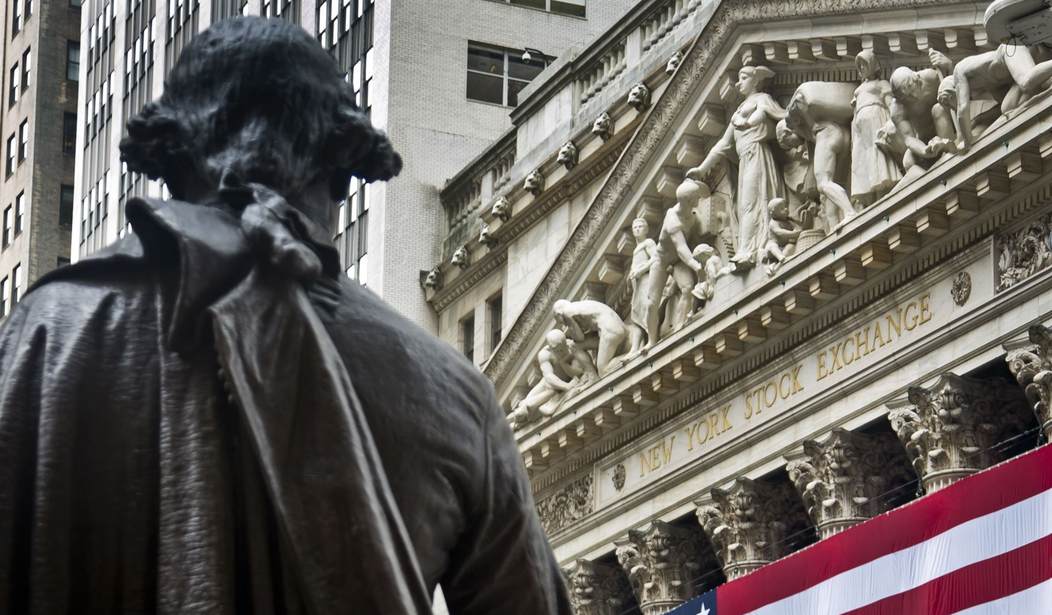Last week President Trump unveiled some more details about his desired tax reform plan, which many in Washington and in various industries across the economy, as well as countless ordinary Americans, have been carefully watching and hoping for. The plan’s exact details still remain in development, but as of yet it appears to be especially friendly to middle-class Americans with significant across-the-board tax bracket rate reductions and simplification.
However in formulating pro-Main Street tax reform, the “Big Six” and tax reform leaders in the Trump Administration and Congress need to ensure they aren’t giving into anti-Wall Street sentiment that is an easy populist target but would significantly damage our economy in the long-run, dampening whatever other benefits tax reform brings.
The financial services industry is no longer demonized in the same way it was in the immediate aftermath of the 2008 financial crisis or in the midst of the 2012 Occupy Wall Street movement. However it is still important to protect financial functions that play an especially essential role in formulating capital, supporting technological advancements, and keeping our economy strong and growing.
The carried interest tax provision is one such seemingly easy target for public anger due to it being a complex financial activity with associated terms, such as private equity, hedge funds, and venture capital, that too easily bring often-unjustified negative stereotypes to mind for many. As we saw during the 2012 election, successful business leaders like Mitt Romney were brutally tarred and feathered in the public square merely because of their work at companies such as Bain Capital.
While the anti-capital markets rhetoric has died down to a degree since, every so often you will hear populist public figures, usually on the left but sometimes on the right, trying to score political points by demonizing an industry that is complex and distant to most Americans, but plays a vitally important role in the American economy.
Recommended
Every small business owner is familiar with how strict regular bank loans are. Banks are hesitant to lend to even businesses that are mostly stable and established, because for regular financial services institutions they need to keep their loan failure rate as nominal as possible.
Venture capital, private equity, and hedge funds will invest however in the kinds of companies that fail in overwhelming numbers, but with a few diamonds in the sand that end up skyrocketing to become major industry disrupters and sometimes even billion dollar companies. Some upstarts that alternative investment firms took a chance on include companies that you may have heard of, such as Facebook, Apple, and eBay.
Besides the big multi-billion dollar behemoths, alternative investment companies play a key role in helping countless small startups and businesses succeed in a whole variety of industries and sectors. But with every company that becomes as successful as Facebook or Apple, there are a dozen that fail and cause the firm to lose their entire investment. Therefore in order to be compensated appropriately for their risk, these firms need to be allowed to up the potential reward through financial mechanisms such as carried interest.
Essentially, carried interest are the profits that partners associated with an alternative investment company receive for their investment before the investment is sold. It is currently taxed as a capital gain rather than as income, which reflects the need to incentive the otherwise extremely risky and prolonged investment horizons that alternative investment companies engage in.
Through their work, the alternative investments industry has created immeasurable benefit to the American economy by finding small but high potential companies that otherwise might have difficulty getting traditional sources of funding that are necessary in helping them get off the ground.
These investments have resulted in incredible advancements and benefits to whole industries and the entire country, and undoubtedly will continue to do so in the future as technological innovation continues to accelerate. Whatever temporary small increase in revenue gained by taxing the industry’s essential financial mechanisms will be offset by immense long-term damage to our economy.
If tax reform is to truly be pro-growth and pro-innovation, it needs to incentivize, rather than restrict, the high-risk but high-reward activities that alternative investment companies engage in and that end up benefiting all of us.
























Join the conversation as a VIP Member